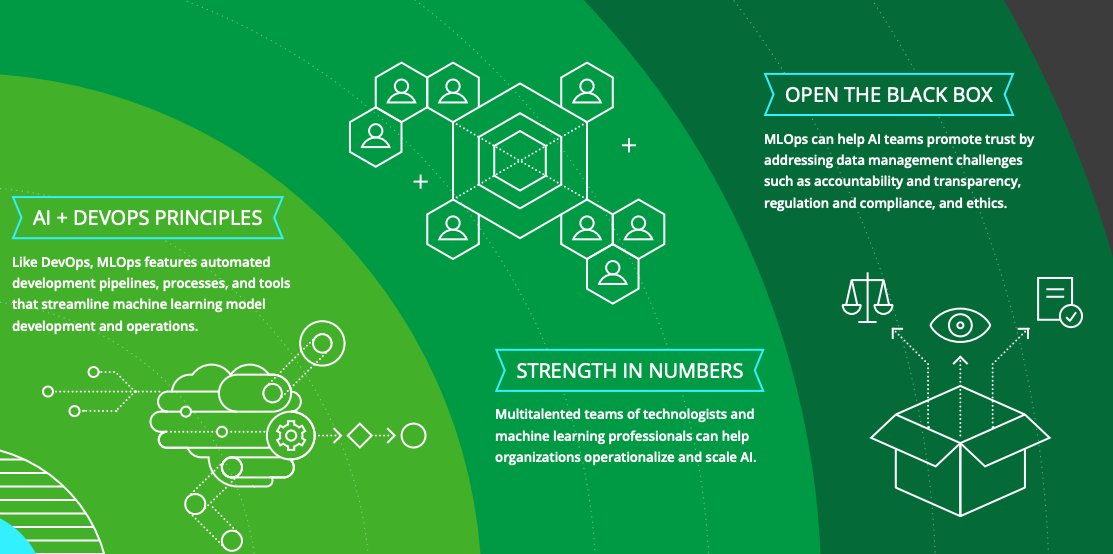
To the more technical individuals out there, MLOps is basically a set of practices for efficient collaboration between different categories of professionals and scientists. These practices are all about simplifying things and adding to the actual management process. They are mostly used in large-scale businesses and industries. The concept is fairly simple to understand – data gathering and analysis before model development and monitoring.
Whether you are trying to expand your career or perhaps start a new one, here are some of the best MLOps books out there to help you understand this concept.
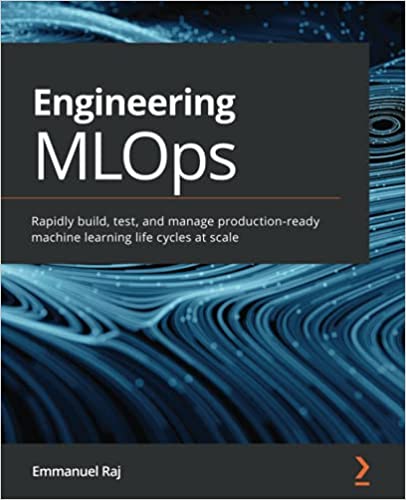
Engineering MLOps, by Emmanuel Raj
Written for scientists and engineers, this book will get you up to date on machine learning management and life cycles in order to help you implement such technologies in your business. The book is quite straightforward and easy to understand – a bit of experience is, however, recommended. It will also teach you how to perform operations to automate everything in ML pipelines.
By the end of this book, you will know how to formulate new strategies, implement ML pipelines, design microservices for different environments and even come up with your deeply customized CD processes for different uses. You will learn how to design ML systems, monitor them and keep them running. Basic learning of how machine learning works is quite important before reading this book.
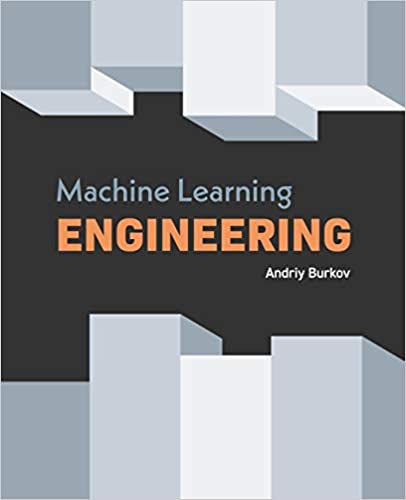
Machine Learning Engineering, by Andriy Burkov
This book came as a fresh breath of air for many machine learning enthusiasts. It provides a deep insight into the most common issues affecting various industries. But on the same note, it also comes with different solutions for such problems – most of them aimed at solving problems at large scale, regardless of the industry.
The book offers a deep introduction to machine learning and its necessity in the long run. Then, it offers a hands-on approach. There are detailed instructions about the reality of machine learning models, as well as their uses in various levels of production. Furthermore, this release is highly recommended by some of the world’s greatest engineers as well.
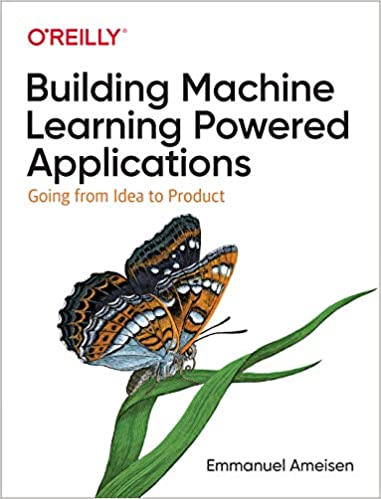
Building Machine Learning Powered Applications, by Emmanuel Ameisen
You may have a few ideas and clues about MLOps, but you probably have no idea where to begin. Go through this book to reveal the skills needed to design and come up with applications backed by machine learning. You will also build a modern ML driven application as an example – it is a hands-on approach with practical experience in the process.
A bit of theory will obviously help. Once in there, you will be able to come up with product goals and set some machine learning protocols. You will develop your first pipeline. You will also learn how to train the ML model, but also how to monitor and evaluate it in order to ensure maximum efficiency. By the end of the book, you will have the basics needed to come up with similar models in production environments.
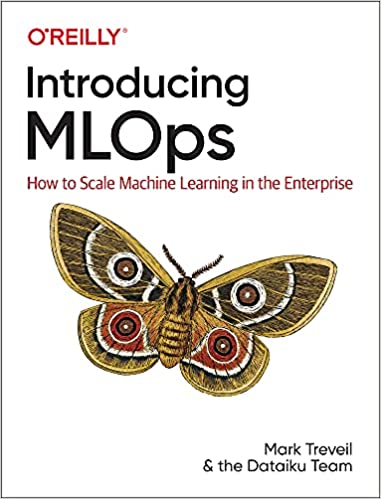
Introducing MLOps, by CL Stenac, L Dreyfus-Schmidt, Kenji LeFevre, Nicolas Omont and Mark Treveil
Many of the ML models out there are lost in dust. They never make it into a big production because they come with technical issues. The concept is definitely a great idea, but producing good models is equally important for efficiency. Having an impact over a business or industry requires more than just the basics and this is what the book is about.
This book is not just about the ML development, but also about the monitoring process and consistent improvements to ensure good final results. You will learn how to handle data science, refine ML models with slight adjustments, tuning and retraining, design life cycles to maximize the efficiency and ensure business systems are fully customized, rather than standard.
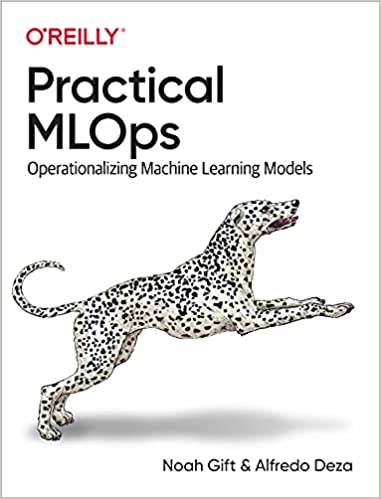
Practical MLOps, by Alfredo Deza and Noah Gift
This is one of the MLOps books that will have a practical impact on your work. Creating models is one thing. Getting them into production is a completely different thing and this is when problems arise. MLOps will bring in proven ideas and principles to solve issues in an automated manner. The concept does not work for everyone though, as lots of engineers get stuck in the process.
The book will teach you the basics – such as differences between MLOps and DevOps, but it will also give you a hands-on approach on how to become familiar with data science, the development of different systems, maximum efficiency and thorough customization. The book is suitable for both beginners and more experienced engineers.
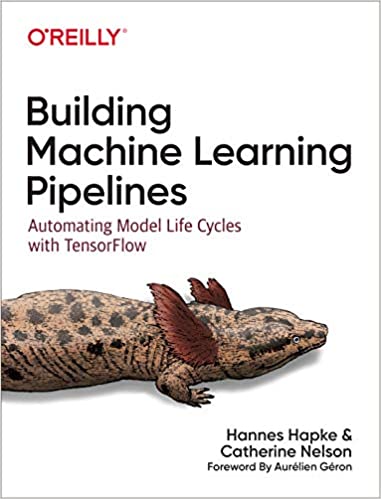
Building Machine Learning Pipelines, by Catherine Nelson and Hannes Hapke
The authors aim to reveal the reason wherefore lots of companies spend millions – or even billions – on machine learning ideas, yet they often waste money because the deployment is not efficient enough. This guide is practical and suitable for scientists, engineers and developers. You will understand the processes to build machine learning pipelines, but also how to do it with different components.
Go through the basics of Apache Airflow, TensorFlow processes and Apache Beam, among others. Find out how to examine fairness in your models and discover different machine learning techniques to help in the process.
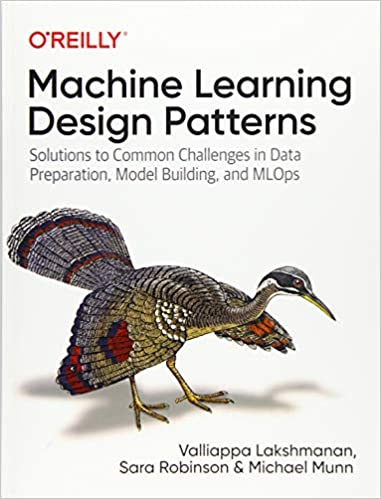
Machine Learning Design Patterns, by Michael Munn, Sara Robinson and Valliappa Lakshmanan
The book provides solutions to the most common problems in machine learning. You will find 30 different patterns in terms of data issues, but also based on flexibility, repeatability and other similar issues. Each pattern describes the actual problem, solutions and recommendations.
As a final conclusion, you will learn how to identify problems, deploy ML models, build training loops and interpret predictions.
Conclusion
In the end, these MLOps books will give you a different insight on these modern technologies. Some of them will teach you how to create models, while others will show you the potential problems and how to develop solutions. Whether you are a working engineer or an aspirant, all of these books require a bit of technical knowledge prior to getting into small details.
